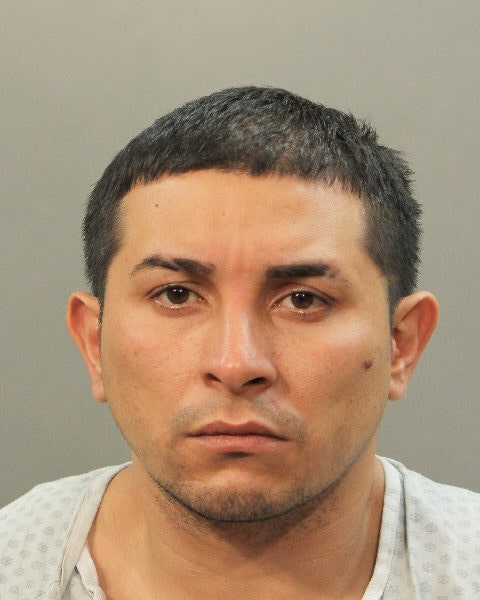Deported MS-13 Member Faces Shocking Abuse Allegations: Unveiling the Dark Truth. The case of Kilmar Abrego Garcia has sparked intense debate and scrutiny over the deportation practices of the United States. As allegations of gang affiliation and domestic abuse surface, this story delves into the complexities surrounding his deportation and the implications for immigration policy.
This article explores the details of Garcia's deportation, the allegations against him, and the broader context of how these cases are handled within the U.S. legal system. It raises questions about the accuracy of information used in deportations and the potential consequences for those involved.
Comprehensive Analysis: DOJ's Strategy Against Gang Violence
The Department of Justice has been actively combating gang-related activities, particularly focusing on MS-13. Their efforts include prosecuting leaders for terrorism charges and addressing juvenile involvement in violent crimes such as kidnapping, assault, and murder. These actions reflect a broader strategy to dismantle organized crime networks and protect communities from their harmful influence.
By targeting high-ranking members like alleged MS-13 leaders, authorities aim to disrupt the hierarchy and operational capabilities of the gang. This approach not only seeks justice for victims but also serves as a deterrent to others considering joining similar groups. The DOJ's commitment to eradicating gang violence is evident through its relentless pursuit of justice.
In addition to criminal prosecution, the DOJ collaborates with local law enforcement agencies to implement preventive measures that address root causes of gang membership among youth. Educational programs, community engagement initiatives, and rehabilitation services play crucial roles in reducing recruitment rates and promoting safer neighborhoods nationwide.
Government Stance: Clarifying Deportation Practices
President Donald Trump defended the decision to deport Kilmar Abrego Garcia, emphasizing his suspected ties to MS-13. Despite controversy surrounding the case, the administration maintains that Garcia's removal aligns with established protocols for handling illegal immigrants with alleged gang affiliations. Evidence supporting these claims includes photos showcasing MS13 tattoos allegedly linked to known gang members.
Supporters argue that deporting individuals connected to dangerous organizations prioritizes national security and public safety. They believe stringent vetting processes ensure accurate identification before taking action against suspected criminals. However, critics question whether sufficient due process was followed in Garcia's situation, raising concerns about potential miscarriages of justice.
As debates continue regarding appropriate responses to undocumented immigrants suspected of gang activity, balancing humanitarian considerations with enforcement objectives remains challenging yet essential for policymakers navigating complex immigration landscapes.
Contested Identity: Examining Kilmar Abrego Garcia's Alleged Affiliation
Kilmar Abrego Garcia finds himself at the heart of a heated dispute concerning his supposed connection to MS-13. While some assert he fits the profile of a gang member based on circumstantial evidence, others contest these assertions, pointing out discrepancies in official narratives. His deportation to El Salvador amidst ongoing litigation highlights the precarious nature of such cases where stakes run high for all parties involved.
Garcia's wife, Jennifer Vasquez, previously sought protection from alleged domestic abuse attributed to her husband. Although protective orders were issued in 2021, their relevance in justifying ICE's actions remains contested. Legal experts weigh in on whether these incidents constitute valid grounds for deportation or if they represent isolated instances requiring separate resolution outside immigration proceedings.
BBC Verify investigates claims surrounding Garcia's alleged gang membership, scrutinizing available data to ascertain credibility. Their findings underscore the importance of thorough investigation when dealing with sensitive matters involving personal freedoms and international relations. Ensuring transparency throughout decision-making processes fosters trust while minimizing risks associated with erroneous judgments.
Judicial Scrutiny: Assessing Evidence Against Deportees
A federal judge recently expressed skepticism regarding unsubstantiated allegations linking deported individuals to MS-13. In reviewing Kilmar Abrego Garcia's case, the court highlighted deficiencies in corroborative evidence supporting claims made against him. Such rulings emphasize the need for robust documentation and reliable sources when determining someone's status as a threat to society.
Legal professionals stress the significance of adhering to constitutional safeguards during deportation hearings. Proper procedures must be followed to safeguard individual rights while upholding laws designed to protect citizens from harm posed by criminal elements. Reevaluating current practices could enhance fairness and consistency across similar cases moving forward.
Ultimately, achieving equitable outcomes depends on diligent examination of facts coupled with adherence to legal principles guiding immigration governance. By fostering open dialogue between stakeholders invested in reforming outdated systems, progress toward more effective solutions becomes attainable.
Supreme Court Intervention: Returning Kilmar Abrego Garcia
Following intervention by the Supreme Court, Kilmar Abrego Garcia returned to the United States after being mistakenly deported to an infamous El Salvador prison. This development underscores the critical role judicial oversight plays in rectifying administrative errors impacting vulnerable populations caught within bureaucratic machinery. Advocates celebrate this victory as affirmation of fundamental human rights principles upheld under American jurisprudence.
Upon reentry, Garcia faces pending allegations related to his purported association with MS-13. Resolving these issues necessitates careful consideration of both prosecutorial interests and defendant protections enshrined within our legal framework. Balancing competing priorities requires nuanced understanding of applicable statutes alongside appreciation for cultural nuances influencing behavior patterns exhibited among immigrant communities.
Moving ahead, lessons learned from Garcia's ordeal should inform future policy discussions aimed at streamlining processes governing deportations. Emphasis on accuracy, accountability, and compassion ensures fair treatment for all affected individuals regardless of background or circumstances encountered along their journeys toward integration into American life.

